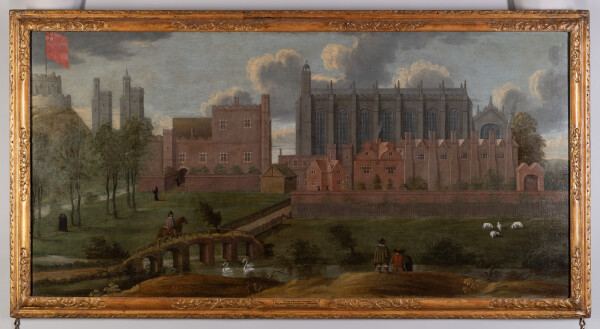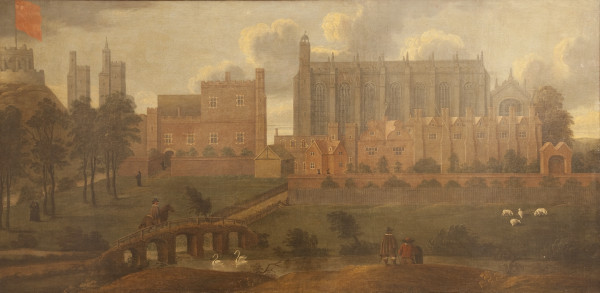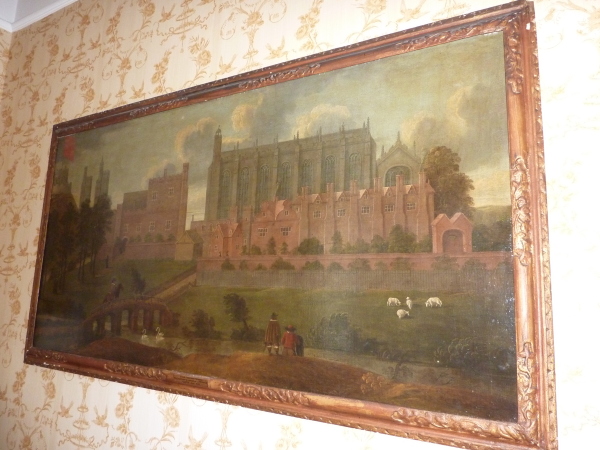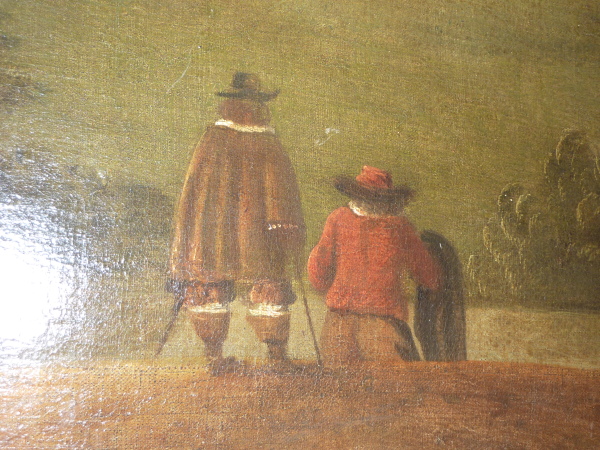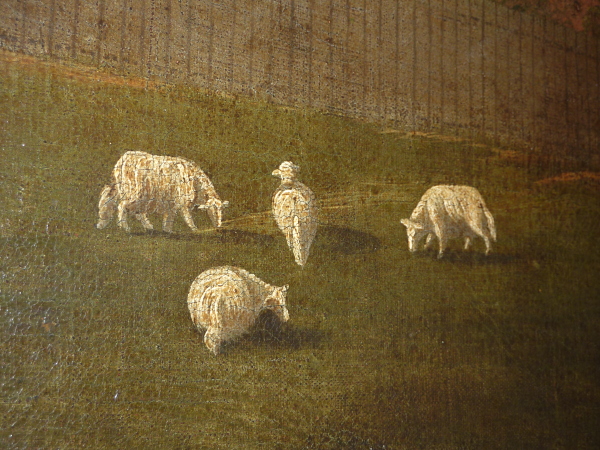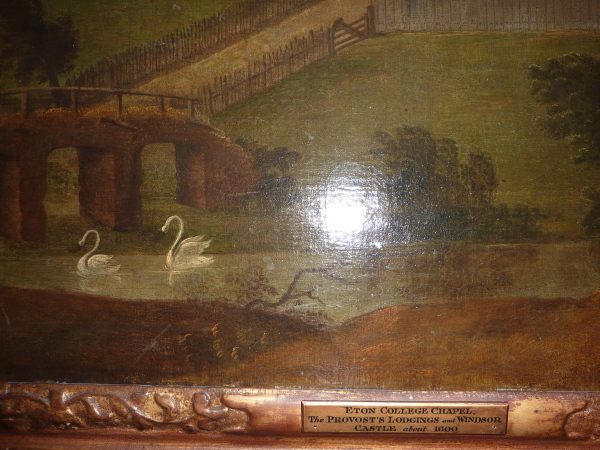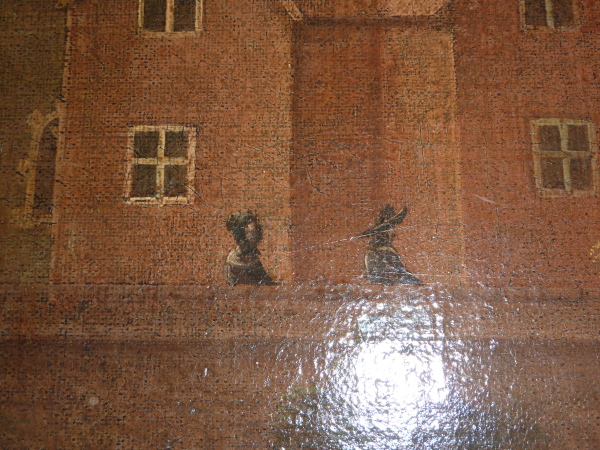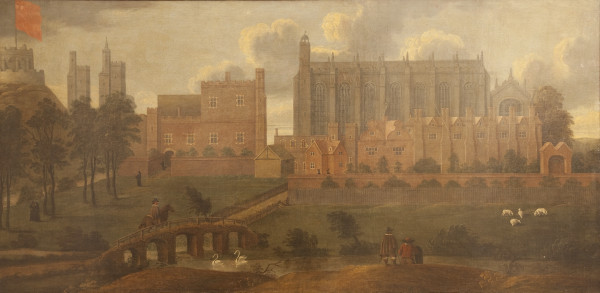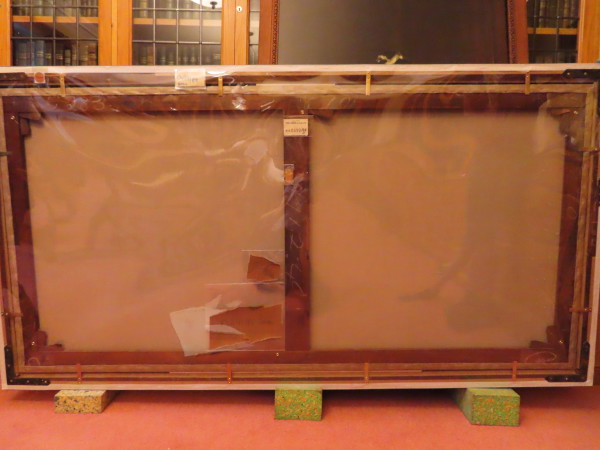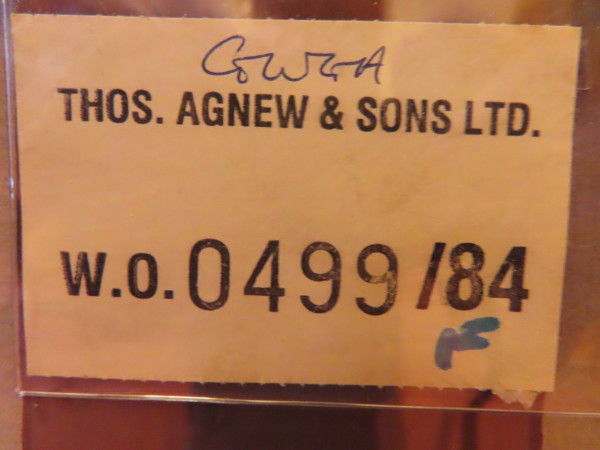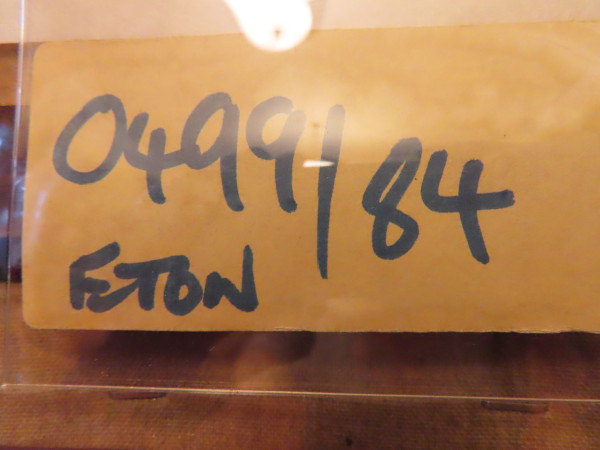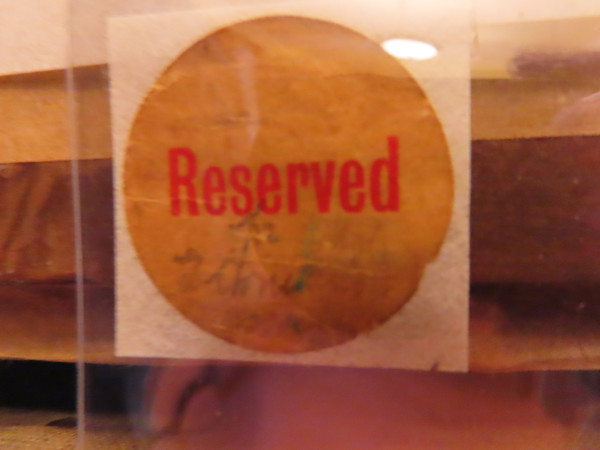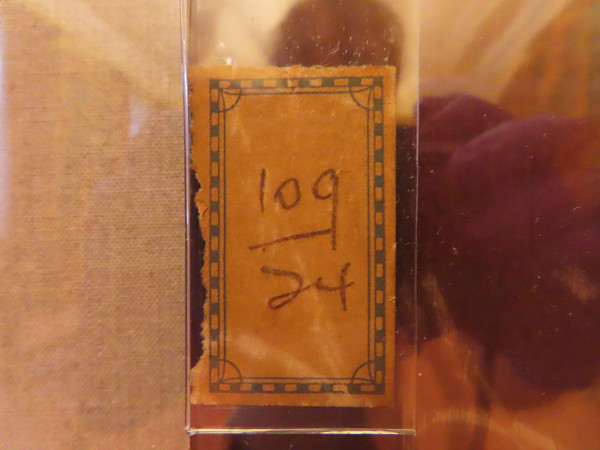FDA-P.411-2010
Parts
Object number
FDA-P.411-2010
Object type
Identification
Title
View of Eton College from the North
Title Type
assigned by cataloguer
Comments
'The dress of the figures in the foreground of this work suggests that it represents a far earlier time in Eton's history. The arrangement of the buildings and the topographical elements are somewhat fanciful. Selected buildings have been arranged in a row as follows, from left to right: the Round Tower and two rather over-elaborated towers of Windsor Castle; Provost’s Lodge with walled garden in front and stable building to the right; College Chapel with part of the College buildings in front, and Savile house as it would be seen from the road, rather than from this angle. The bridge in the foreground does not attempt to reproduce the Fifteen-Arch Bridge.
There is more to find out about this mysterious view of Eton College. The frame has a label, which bears the title 'Eton College Chapel, the Provost Lodgings and Windsor Castle about 1600'. However, the date of the work has long been contested and current thinking is that it was painted during the mid-17th century. Although attributed to an unknown painter, the work was formerly ascribed to Dutch émigré artist Jan Wyck (c.1645–1700).
What we do know about the painting is how it arrived at Eton College. In July 1940, an art sale was held at Christie's, London, in aid of the Red Cross, whose efforts were focussed on helping British prisoners of war. This painting was donated to the sale by old Harrovian Lord Fairhaven of Anglesey Abbey, in Cambridgeshire. A group of Old Etonians, led by Major Astor, planned to purchase the work for the College but, after the bidding rose too high, art dealer Claude Partridge, another old Harrovian, stepped in to pay the 50 guinea shortfall. A report on the sale concluded: ‘Thus, Eton and Harrow were united for the sake of the Red Cross.’
There is more to find out about this mysterious view of Eton College. The frame has a label, which bears the title 'Eton College Chapel, the Provost Lodgings and Windsor Castle about 1600'. However, the date of the work has long been contested and current thinking is that it was painted during the mid-17th century. Although attributed to an unknown painter, the work was formerly ascribed to Dutch émigré artist Jan Wyck (c.1645–1700).
What we do know about the painting is how it arrived at Eton College. In July 1940, an art sale was held at Christie's, London, in aid of the Red Cross, whose efforts were focussed on helping British prisoners of war. This painting was donated to the sale by old Harrovian Lord Fairhaven of Anglesey Abbey, in Cambridgeshire. A group of Old Etonians, led by Major Astor, planned to purchase the work for the College but, after the bidding rose too high, art dealer Claude Partridge, another old Harrovian, stepped in to pay the 50 guinea shortfall. A report on the sale concluded: ‘Thus, Eton and Harrow were united for the sake of the Red Cross.’
Description
Content (place)
Eton College
Dimensions
height (sight size): 920mm
width (sight size): 1865mm
height (frame): 1067mm
width (frame): 2014mm
depth (frame): 42mm
width (sight size): 1865mm
height (frame): 1067mm
width (frame): 2014mm
depth (frame): 42mm
Inscription
I.D. label on front of frame: 'Eton College Chapel, the Provost Lodgings and Windsor Castle about 1600'
Label on back: 'Thomas Agnew and Sons Work Order 0499/84'
Circular label on back, lettered and inscribed: 'Reserved / for Old / Etonians'
Label on back: 'Thomas Agnew and Sons Work Order 0499/84'
Circular label on back, lettered and inscribed: 'Reserved / for Old / Etonians'
Materials & techniques note
Oil on canvas
Physical description
Carved gilt wood frame, with bronze overpaint
Frame 3 inches wide; stretcher just around the edges
Frame 3 inches wide; stretcher just around the edges
Style
British School 17th Century
Production
Date
c.1640-1660
History and association
Object history note
Provenance: Collection of Lord Fairhaven of Anglesey Abbey, in Cambridgeshire; by whom sold through Christie's, London, in July 1940, in aid of the Red Cross; from which sale purchased for Eton College by Old Etonians, led by Major Astor, and art dealer Claude Partridge
